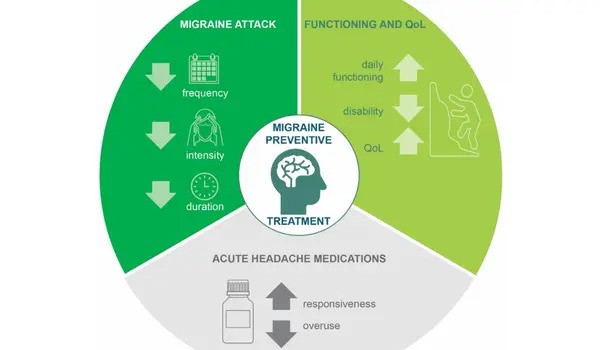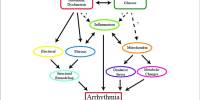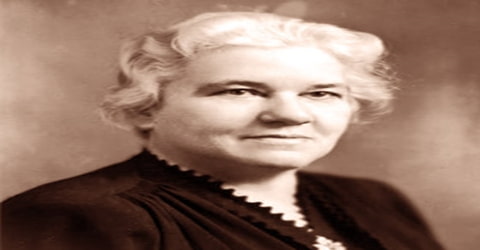According to a recent study published in the online issue of Neurology®, the medical journal of the American Academy of Neurology, a migraine prevention medicine may also be useful in migraine sufferers who experience rebound headaches.
When taking the migraine prevention medicine atogepant, people with chronic migraines who abused pain medication saw fewer monthly migraine and headache days, as well as fewer days using pain medication.
“There is a high prevalence of pain medication overuse among people with migraine as they try to manage what are often debilitating symptoms,” said study author Peter J. Goadsby, MD, PhD, of King’s College London and a member of the American Academy of Neurology. “However, medication overuse can lead to more headaches called rebound headaches, so more effective preventive treatments are needed. Our findings are encouraging, suggesting atogepant may help reduce the need for pain medication among people with chronic migraine.”
Based on our findings, treatment with atogepant may potentially decrease the risk of developing rebound headache by reducing the use of pain medications. This could lead to an improved quality of life for those living with migraine.
Peter J. Goadsby
The trial included 755 patients with chronic migraine, which was characterized as having 15 or more headache days per month, eight of which were migraine. Of this group, 66% matched the criteria for medication overuse, which is defined as taking pain medications such as aspirin, nonsteroidal anti-inflammatory drugs (NSAIDs), or acetaminophen for 15 or more days in a month, triptans or ergots for 10 or more days in a month, or any combination for 10 days.
At the beginning of the trial, the average monthly migraine days varied from 18 to 19, whereas the average monthly pain medication days ranged from 15 to 16. For 12 weeks, participants received either 30 milligrams (mg) of atogepant twice daily, 60 mg once daily, or a placebo. Atogepant is a calcitonin gene-related peptide receptor antagonist, or CGRP inhibitor. CGRP is a protein that plays a key role in starting the migraine process.
Participants recorded their migraines and headaches in an electronic diary, noting characteristics including duration and intensity, whether they experienced aura or nausea, and if they took other medications.

Researchers discovered that participants with medication overuse who took atogepant twice daily had three fewer migraine days per month and three fewer headache days than those who took a placebo. Compared to the placebo, those who took the medicine once a day had two fewer migraine days per month and two fewer headache days overall. Both groups took three fewer days of pain medication to treat their symptoms than the placebo group. According to the researchers, people who did not misuse medications experienced similar reductions.
In those with medication overuse, 45% of those taking the medicine twice daily and 42% of those taking it once a day experienced a 50% or greater reduction in average monthly migraine days compared to 25% who took the placebo.
The number of people meeting the criteria for medication overuse also declined by 62% among those taking the drug twice daily and by 52% among those taking it once a day.
“Based on our findings, treatment with atogepant may potentially decrease the risk of developing rebound headache by reducing the use of pain medications,” according to Goadsby. “This could lead to an improved quality of life for those living with migraine.”
Goadsby stated that more research is needed to investigate the long-term safety and effectiveness of atogepant, as well as the potential danger of medication overuse relapse among migraine sufferers.
One weakness of the study was that individuals recorded their headaches and medication use in electronic diaries, therefore it is conceivable that some participants did not record all information accurately.
















